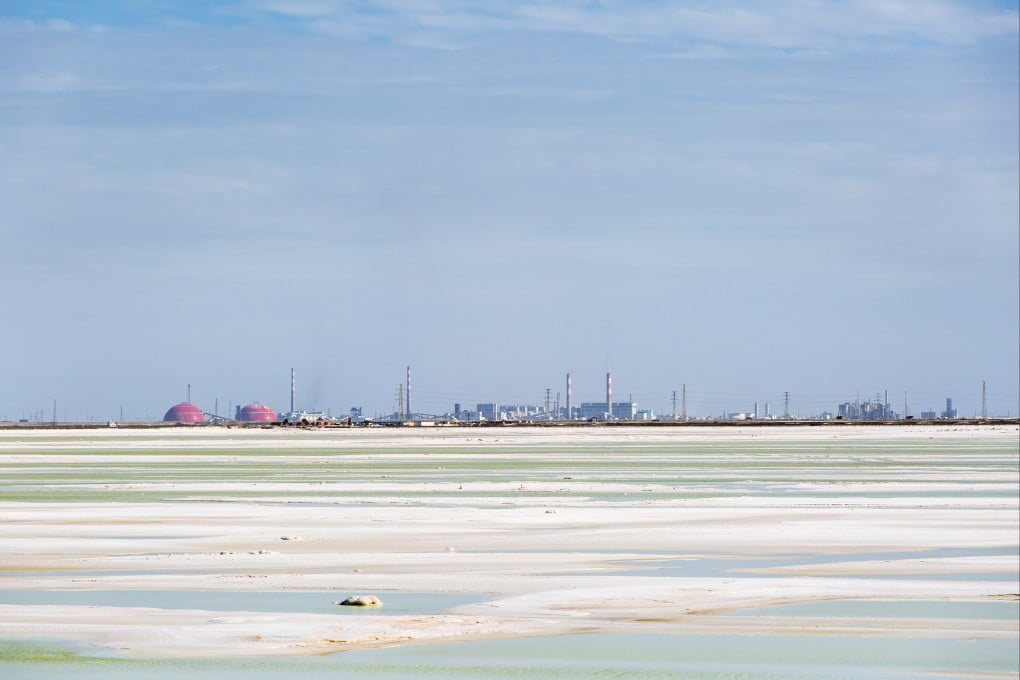Advertisement
Chinese EV industry’s lithium demand fuels research into ‘low-quality’ sources
Engineers from Nanjing University evaluate new methods of extracting the metal from seawater, salt lakes and even sediments
Reading Time:3 minutes
Why you can trust SCMP
1

As demand for the lithium that powers China’s booming electric car industry continues to grow and shortages loom, scientists are exploring ways to extract the metal from abundant but so far undeveloped sources.
In a paper published by the peer-reviewed journal Nature on December 11, engineers from Nanjing University assessed the potential of innovations that are being developed to extract lithium from “low-quality brines” like seawater and salt lakes.
The metal – a crucial component in EV batteries – is also present in water found in oilfields and in sedimentary deposits but extraction from these sources has not been viable so far.
“Extracting lithium from these sources presents technical challenges owing to low lithium concentrations and high magnesium-to-lithium ratios,” the researchers said in the paper.
While China is the world’s largest refiner of lithium, it is mostly derived from the highly concentrated brine found beneath the salt flats of South America or from hard rock ores which are abundant in countries like Zimbabwe in southern Africa.
To meet domestic demand for the lithium ores, Chinese mining companies have established extraction and processing operations in Zimbabwe.
Advertisement